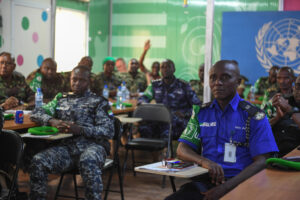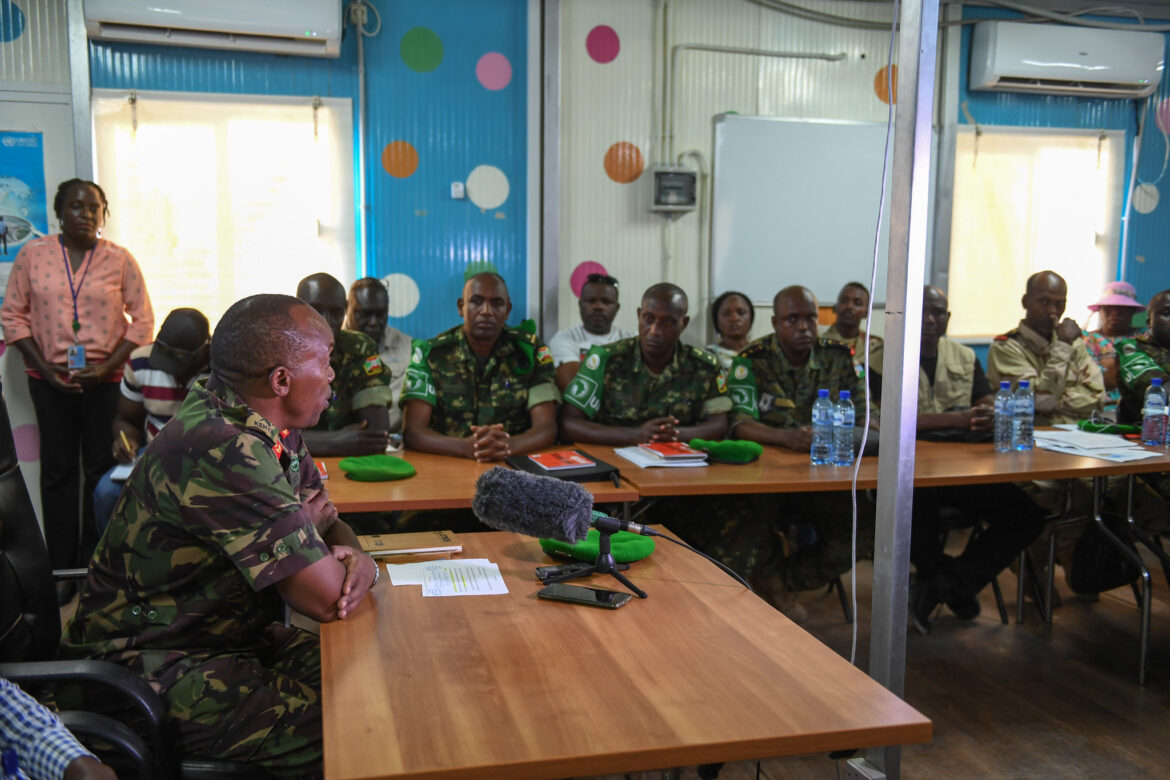Mogadishu, 14 July 2023 – The African Union Transition Mission in Somalia (ATMIS) is decentralising its logistics support to improve on efficiency in the supply and consumption of fuel and other critical resources in its Forward Operating Bases (FOB) across Somalia.
“We must ensure that what we get is optimally used so that we can achieve our mandate,” Maj. Gen. Peter Kimani Muteti, ATMIS Deputy Force Commander in charge of Support and Logistics, said on Thursday at the end of a three-day workshop held in Mogadishu for selected Logistics officers from the military and police components.
Maj. Gen. Muteti said ATMIS was keen to ensure full operationalisation of Joint Logistics Operations Bases (JLOBs) in all its sector headquarters as part of the decentralisation efforts.
He explained the move would help in the efficient use of resources and strengthen collaboration between ATMIS troops and Somali Security Forces.
“Now that you have been taught, you should know exactly the processes and procedures that you will apply to get those resources and that will ensure that the sectors are supported as much as possible,” the Deputy Force Commander said.
Maj. Gen. Muteti reminded all that the judicious use of resources would be critical in the success of the second phase of the drawdown scheduled for September.
The training organised by the ATMIS Joint Support Operations Centre (JSOC) and the Fuel Unit of the United Nations Support Office in Somalia (UNSOS) drew 55 Police and Military Transport Officers (MTOs), Logistics and Fuel Officers from all ATMIS sectors.
The Deputy Force Commander noted that the main objective of the training was to equip participants with the necessary knowledge on the complexities of the fuel supply chain.
“If you are not able to service the vehicles and ensure you can manage the fuel resources well, then it will directly impact on operations. Nothing will move in terms of operations until you are able to move your vehicles and equipment,” Maj. Gen. Muteti noted.
The training also identified among others, the obstacles that hinder the appropriate and timely supply of lubricants crucial for the successful conduct of joint military operations.
The Deputy Force Commander urged the participants to adhere to the Standard Operating Procedures (SOPs) and to share the knowledge acquired from the training with colleagues in their respective sectors.
The ATMIS Military Chief Logistics Officer, Col. Bosco Sibondavyi, said training will contribute to the overall achievement of the Mission’s mandate.
“The workshop has expanded our knowledge and improved our understanding of fuel and lubricant support in supply chain process,” noted Col. Sibondavyi.
Warrant Officer Hussein Boshe, a participant from the ATMIS Kenya contingent said the training had tremendously benefited Military Transport Officers and their Logistics counterparts from the sectors.
Another participant, Assistant Superintendent of Police (ASP), Rejoice Dogbe, noted that the knowledge gathered would enhance efficiency.
“It is a course that will help minimise wastage and account for whatever we are being given so that the Mission can see the benefit of the support given to us,” said ASP Dogbe, the Logistics Officer for the Ghana Formed Police Unit (FPU) who is based in Baidoa, the administrative capital of Southwest State.




